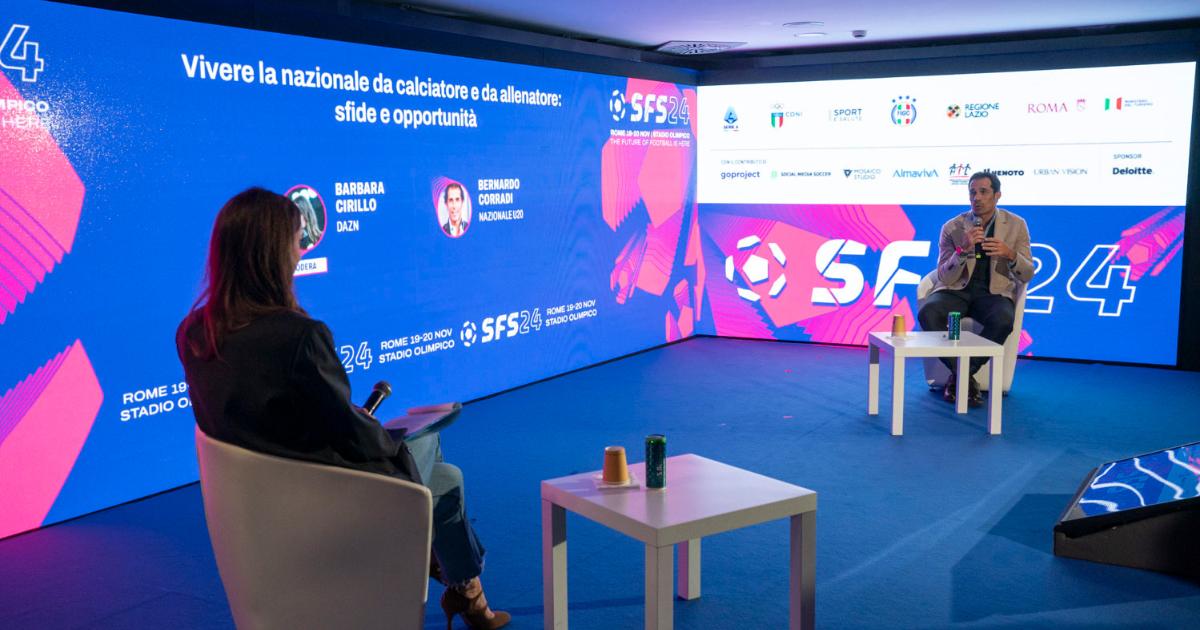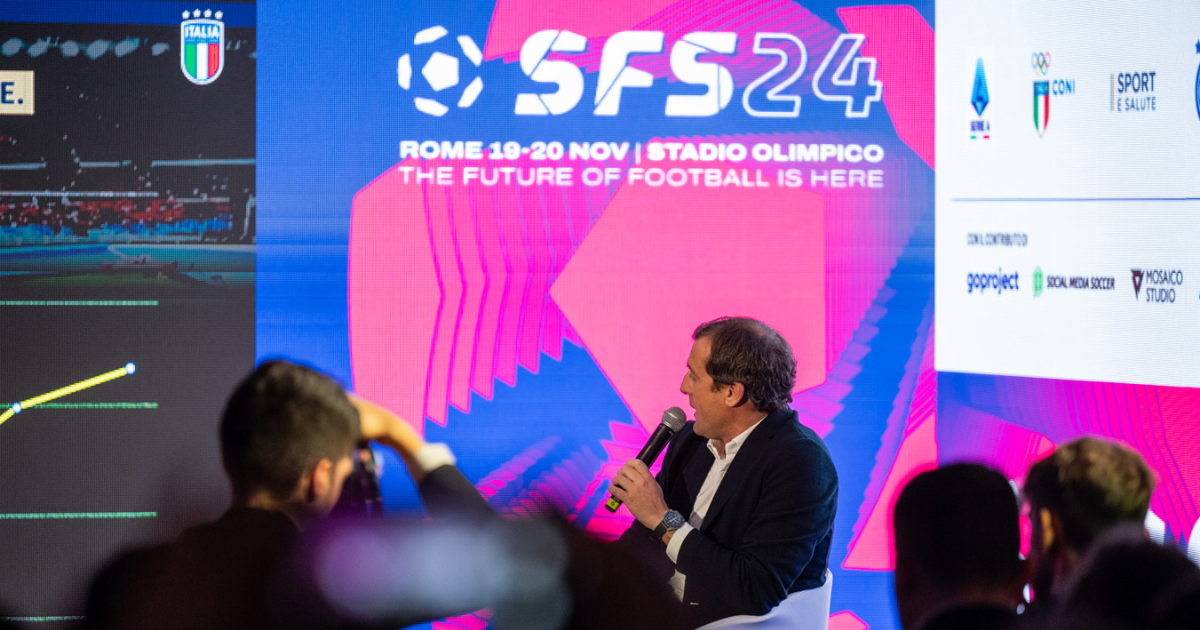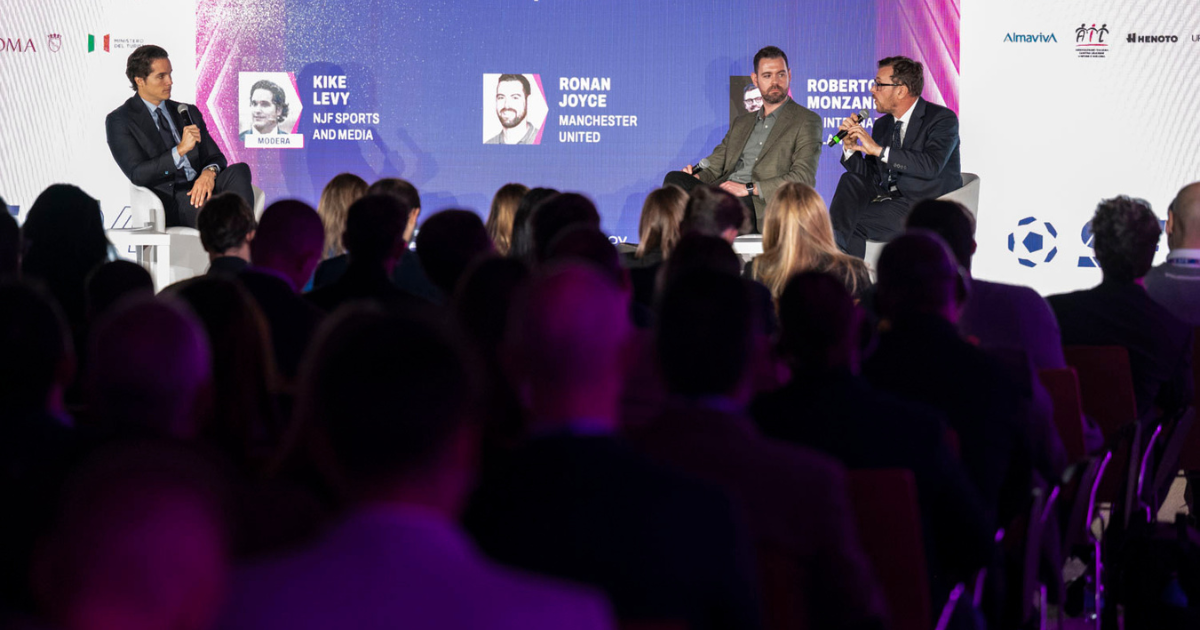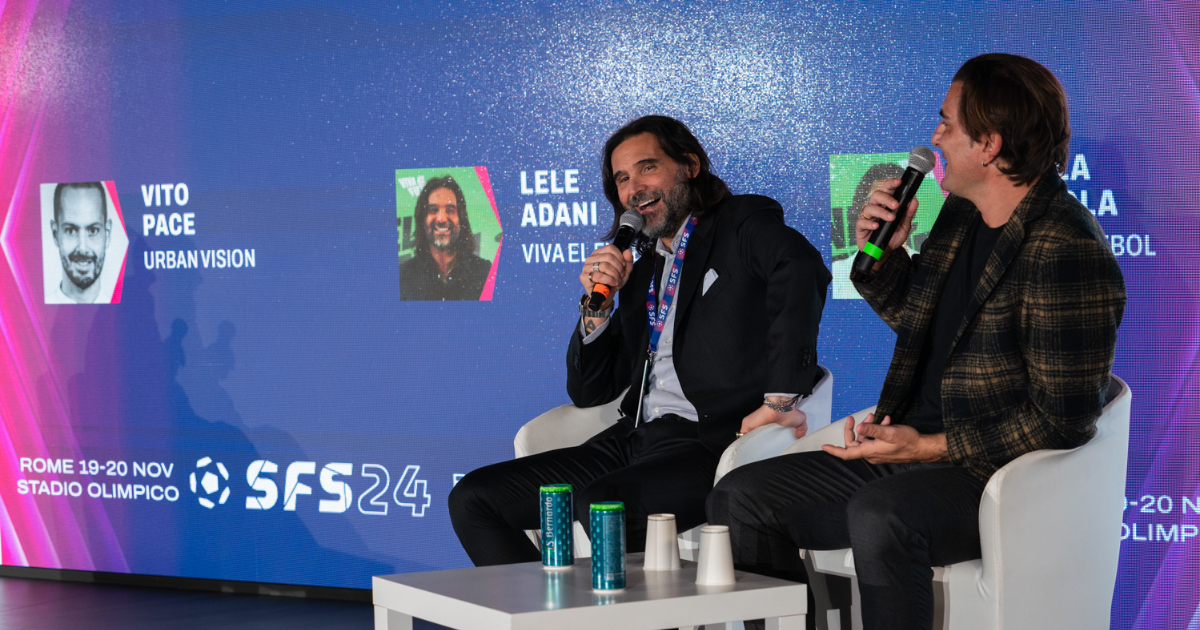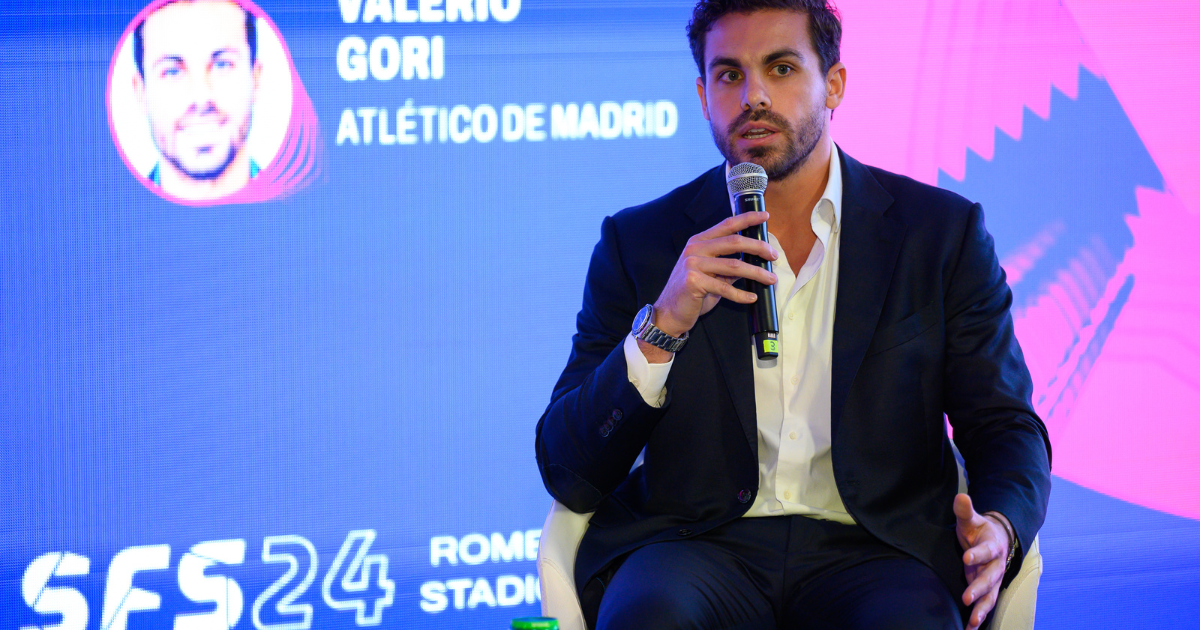During SFS24, the event that annually brings together experts and key players in the football industry to discuss its evolution, Bernardo Corradi shared his experiences from past to present, retracing his journey from being a National Team player to coaching Italy’s U-20 side. Moderated by DAZN journalist Barbara Cirillo, the panel offered an insightful reflection on the modern role of a coach and the importance of communication and personal growth for young players.
With 246 Serie A appearances, 56 goals, and 13 caps for the Azzurri, Bernardo Corradi is a name that evokes memories of great matches and decisive goals. Today, however, his challenge takes place on the bench, where he leads the U-20 Italian team with the same enthusiasm he had as a player. “Playing for Italy”, Corradi said, “is a privilege and a responsibility that I strive to pass on to the young players I coach”. His experience as a player prepared him for the pressures and emotions of wearing the national jersey, but transitioning to the bench has sparked many reflections on the coach’s role, which has changed drastically compared to just ten years ago.
Among the transformations in modern football, Corradi highlighted the importance of communication, even for those on the bench. “I’m starting to explore social networks, and today’s players pay a lot of attention to them. Football now has an enormous communicative impact”, he said. From this perspective, the FIGC has made significant strides, investing in its public communication and incorporating innovative tools to tell the story of Italian football in a more engaging way. As the former Reggina and Manchester City striker pointed out, matches no longer end on the pitch; their storytelling extends to peripheral and transversal moments as well.
Talent management is another crucial aspect of Corradi’s work. Thanks to the efficiency of the FIGC scouting system, the U-20 team benefits from a network of 25 scouts who monitor the best young talents across Italy. “Mateo Retegui, for example, is the result of this work”, emphasized the coach. It’s not just about discovering future champions but also about shaping well-rounded individuals. With the support of academic tutors within the federation, young players are guided in their educational journeys, ensuring them a future beyond football. A prime example is Giovanni Fabbian, who is investing in his cultural growth, showing promise both on the pitch and in the classroom.
Finally, the panel also discussed the figure of Leonardo Bonucci, whose presence on the U-20 coaching staff is an invaluable asset. “Being alongside an icon like Bonucci is a tremendous learning experience for the players. It’s not just about learning from a champion on the field but also about adopting all those human qualities that allowed him to perform on the world’s biggest stages”, said Corradi.
Between on-field work, emotional management, and the transmission of values, Corradi and his staff are constantly striving to write the next chapter in the history of Italian football.
“Playing for Italy is a privilege and a responsibility”, said Bernardo Corradi at SFS24
During SFS24, the event that annually brings together experts and key players in the football industry to discuss its evolution, Bernardo Corradi shared his experiences from past to present, retracing his journey from being a National Team player to coaching Italy’s U-20 side. Moderated by DAZN journalist Barbara Cirillo, the panel offered an insightful reflection on the modern role of a coach and the importance of communication and personal growth for young players. With 246 Serie A appearances, 56 goals, and
FIGC and a new communication paradigm
Among the many panels featured at SFS, the one with Giovanni Valentini – Chief of the Revenue Area and Deputy Secretary-General of the Italian Football Federation (FIGC) – focused on the evolution of communication strategies within the FIGC in recent years. The discussion, moderated by DAZN journalist Barbara Cirillo, provided an in-depth look at the paradigm shift initiated in 2018 following Italy's failure to qualify for the World Cup. The objective was clear: to revive the national team’s appeal and reach
The Digital Challenge in Football: Strategies to Win Over the New Generations
In a panel moderated by Kike Levy, Head of NJF Sports and Media, the radical transformation of the football industry and younger generations’ communication styles and use of social media were analyzed. "Reaching and Engaging the Next Generation of Sports Fans", the name of the panel, featured Roberto Monzani – Media House Director at FC Internazionale – and Ronan Joyce – Director of Digital Innovation D2C at Manchester United – sharing their insights on a crucial topic. Football has changed not
VIVA EL FUTBOL: A NEW COMMUNICATIVE PARADIGM
"Football for the people" as Lele Adani puts it to summarize his life philosophy. During the Summit, he took the stage at the Football Stage alongside his friend and broadcasting partner Nicola Ventola. In a panel moderated by Vito Pace, CMO (Chief Marketing Officer) of Urban Vision, the two discussed the new online format 'Viva el Futbol'. After their experience with 'Bobo TV', the former footballers — together with Antonio Cassano — decided to continue their journey by launching a project
Atletico Madrid and the Communication Revolution: Between Creativity, Data, and the Creator Economy
Atletico Madrid is not only one of the most successful and competitive teams in the European football scene but also a communication laboratory that leverages creativity and diversification strategies as its key strengths. At SFS24, Valerio Gori – Marketing Director of Atletico Madrid – explained to Carlo De Marchis and Paola Marinone how the Madrid-based club has managed over the years to build an omnichannel communication strategy with high engagement rates. Everything revolves around international positioning, through concrete and unique actions
Master of Communications: Innovation, Digital Strategies, and New Fan Engagement Models in the Football Industry
The introduction of new communication models and the challenges of contemporary football have brought new hurdles and creative strategies to optimize fan engagement. Fans, being the primary interest of the clubs, must actively be at the center of any targeted action. This was the main topic of the "Master of Communications" panel, held during the seventh edition of the SFS. On stage, several managers from the football industry, such as Ian Taylor – Head of Communications at West Ham United FC,



